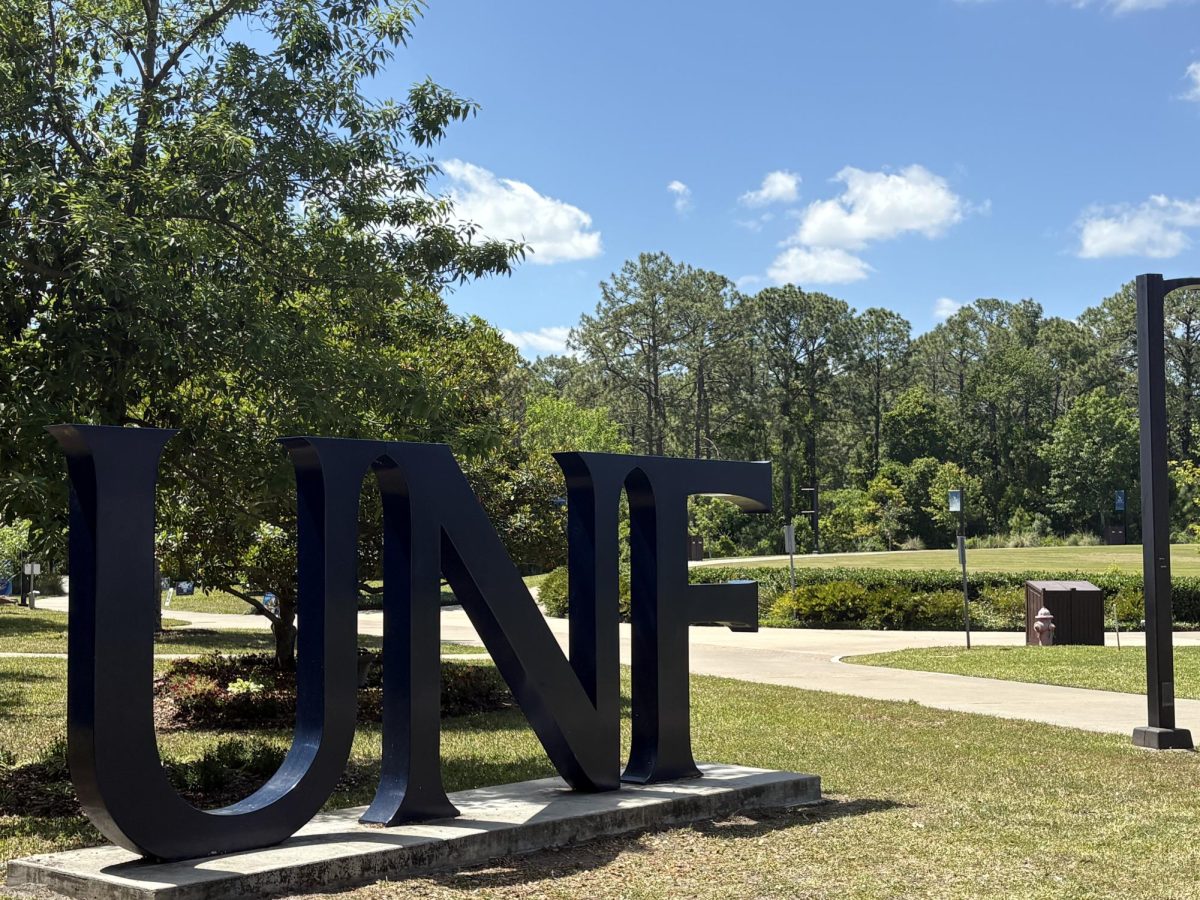
The UNF Department of Health Promotion expects $25,000 from the Advanced Health Education Center to promote a smoke-free campus for the fifth consecutive year sometime in August, said Mike Kennedy, the assistant director of health promotion.
The center has awarded a total of $120,000 to health promotion to help UNF move toward a tobacco-free campus. AHEC originally contacted UNF for the opportunity to receive the grant, and UNF has received it ever since, Kennedy said.
He said the director of AHEC at the time contacted him, and the center awarded health promotion the first year it wrote the grant.
Health promotion has used the grant to provide smoking cessation classes and programs for students who live in the dorms, Kennedy said. And as an incentive to quit smoking, the department offers a trade-off of cigarette packs for healthy snacks.
In the first few years of receiving the grant, the health promotion department created full body-sized cigarette costumes for the health educators and passed out tobacco-related information, Kennedy said.
The department has been working to educate students and staff. Director of UNF Health Promotion Shelly Purser and Kennedy attended a workshop focused on smoke-free campuses sponsored by the Duval County Health Department and the Tobacco-Free Jacksonville Coalition.
The grant is used to inform people on the dangers of smoking, second-hand smoke and any tobacco use, Kennedy said. Kennedy said he estimates the department’s smoking cessation efforts have rearched 350 students reached per semester.
But some students don’t think classes on the dangers of smoking are necessary.
“I don’t understand why college-aged kids start smoking in the first place. It boggles my mind. They know it’s bad for you,” said Allison Callahan, a UNF graphic design junior.
Pamela Chally, dean of Brooks Brown College of Health, wants to improve the health of UNF’s students, faculty and staff. A lot of efforts go to help those who are already smoking to quit, Chally said.
Kennedy said UNF has been moving toward a smoke-free campus for over a year. Kennedy said UNF President John Delaney was open to moving in the direction of a smoke-free campus if there was data to back it up.
Delaney said moving toward a smoke-free campus needed to be a consensus on campus and not a decision from the president’s office.
“It’s not abrupt and sudden,” he said, “but the idea is to do it in an evolutionary fashion.”
The health promotion department distributed a survey in fall 2011 and found that nearly 75 percent of the student and staff respondents support a smoke-free campus and do not smoke.
Kennedy said the department wants to respect the rights of smokers on campus but also honor what the university community said through the survey in support of a smoke-free campus.
Jackie Pearl, a UNF communication senior, said students have the right to smoke but being on a confined campus increases secondhand smoke.
Tali Talavera, a health educator in the health promotion department, thinks having designated smoking areas won’t work because people don’t follow the restrictions.
But beyond smoking cessation classes, UNF may see moves toward a smoke-free campus in the future.
Kennedy said he hopes for an endorsement from Delaney this fall to build a timeline for a smoke-free campus — an endorsement Delaney said his department has already given the department of health promotion.











